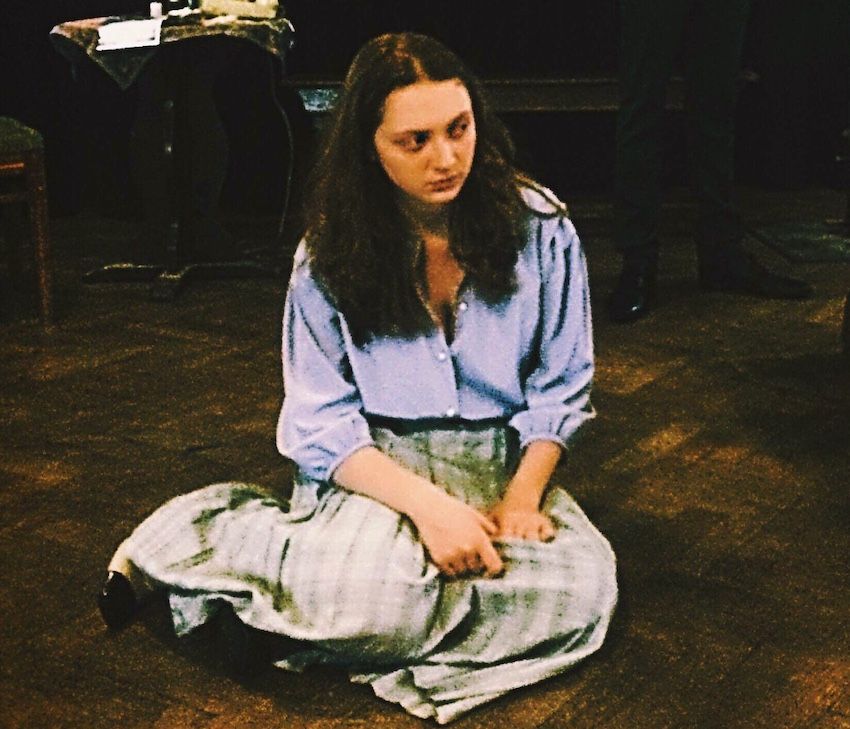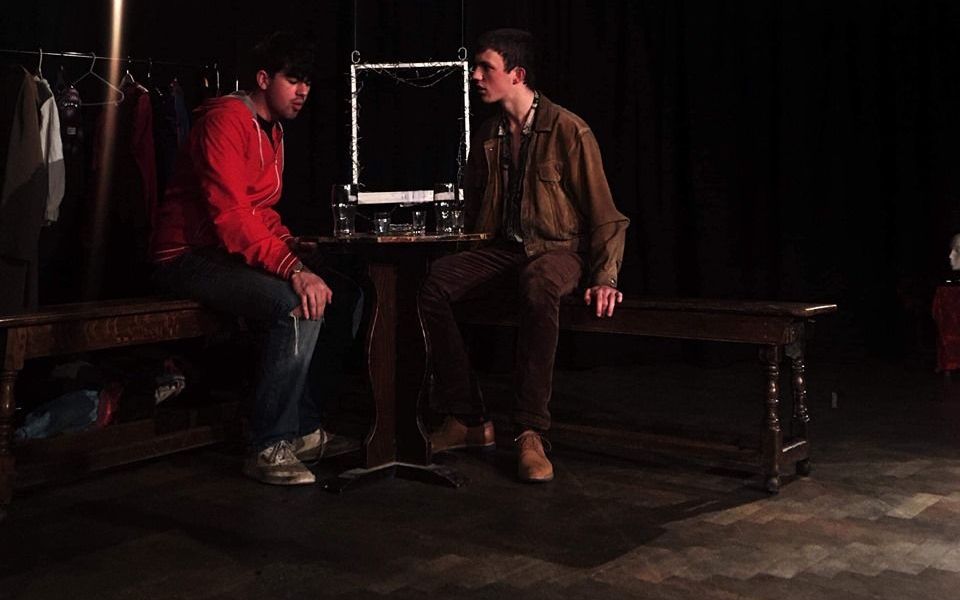
Review: Wife
Dynamic, surprising and thoroughly captivating
LGBT+ History Month has just begun, and how better to celebrate it than by going to see Wife at the Pembroke New Cellars?
A piece of new writing by Samuel Adamson, the play carries the audience from 1959 to 2042, while exploring homosexual and heterosexual love, marriage and politics, and keeping us captivated from start to finish. We experience all of this through Nora, the protagonist of Ibsen’s A Doll’s House, who becomes a voice for society’s outcasts; a rebel against the "done thing". She is interpreted by different actresses, in turn, over the course of the 90 years, as a persistently resonant symbol of independence and strength. Through her, we see the historical fluidity of our attitudes towards love, relationships, sexual identity and, of course, towards theatre. Family dramas play out around her, as four couples look back on their past and reassess their present.

Photo Credit: Jen White
Lovingly and insightfully directed by Cara Dromgoole, and assistant directed by Will Leckie and Jen White, the intricacy and eccentricity of Wife allows the actors to show their range, and they do not disappoint. Aine McNamara (Daisy / Clare) and Theo Tompkins (Robert / Ivar at 28 / Finn) in particular stood out for their spirited and sensitive performances, moving from one role to another with a professional ease – these two will definitely be ones to watch in the future.
The multi-roling did, though, present a slight challenge, since it was initially hard to follow at the beginning of scenes in the absence of any consistent visual motifs to help identify the characters. However, it did keep the audience on their toes. The cast as a whole is talented, their chemistry apparent as soon as they came on stage.
Wife is like a live wire, tense and sizzling with electricity, and the minimalist set and lighting designed by Jamie Atkinson (a piece of scaffolding stretching across the stage, with bare bulbs hanging from it) maintains this sense. The staging was impressively executed given the limited space of the New Cellars – there was never a moment when the action was out of sight, or where a crucial facial expression was lost.
Under the movement direction of Stella Rousham, moments of conflict between the characters (of which there are many) were rarely static, and when they were they held a silence and poise which made them truly mesmerising. The dynamics between characters shifted constantly and unpredictably, the dialogue always charged, energetic and often very funny, moving from dark humour and uncomfortable innuendos to the gentle mocking of the seemingly harmless straight white man who cannot help but constantly offend.

Photo Credit: Jen White
While the play takes aim at the "heterosexual jungle", and touches on the AIDS crisis, Section 28, and other awful parts of queer history in the UK, it also calls contemporary identity politics and extreme political correctness into question. Wife is not trying to push an agenda, or offer glib answers to controversial questions – it is, rather, a deeply personal and nuanced portrayal of the way we navigate society with all of our differences. “I’ll take queer – I am,” 28-year-old Ivar proclaims to his closeted lover, in a fervent embrace of his own identity against the unaccepting backdrop of a run-of-the-mill pub in 1988.
The multi-stranded plot presents a director with significant challenges, which this production addresses without ever feeling overworked or pretentious. In fact, its presentation was beautifully simple and natural, both in aesthetics and in delivery, despite the complexity of the script. There were, admittedly, several stumbles over lines which led to momentary falters, but this is only natural for an opening night. Watching the play frequently felt like being a fly on the wall in people’s daily lives, so unaffected were the moments of emotion – something extremely difficult to achieve as a student production with limited rehearsal time.
“It’s only a play – whatever sprouted in you will be dead within a week,” Susannah, who plays one version of Nora, tells her lover Daisy. In the case of Wife, and as this production admirably demonstrates, the impact of a good piece of theatre can live on much longer than that. I certainly hope to carry some of its messages, its pride, and its joy for life with me.
5/5
Cover: Jen White









































